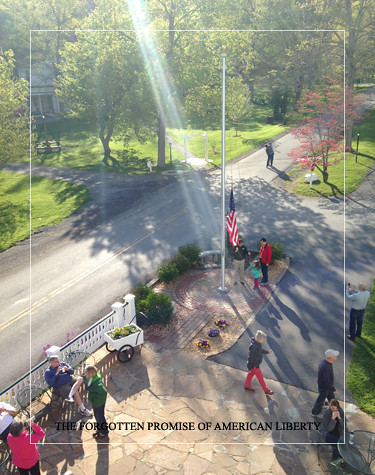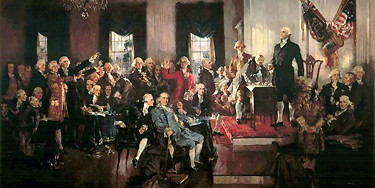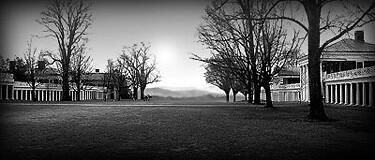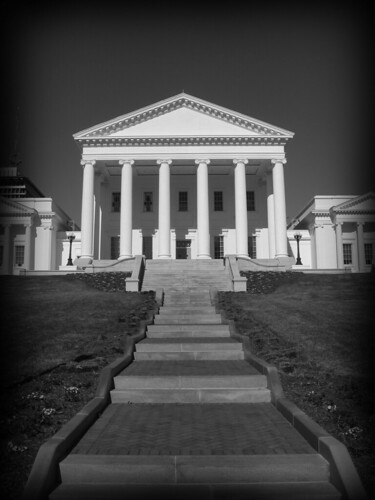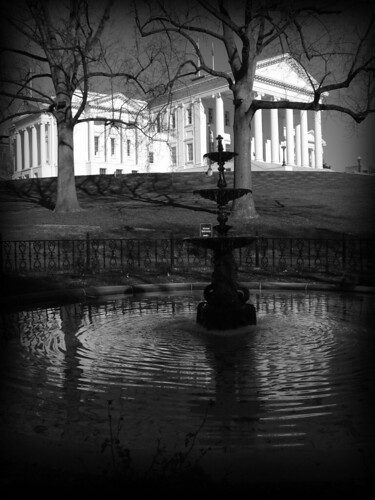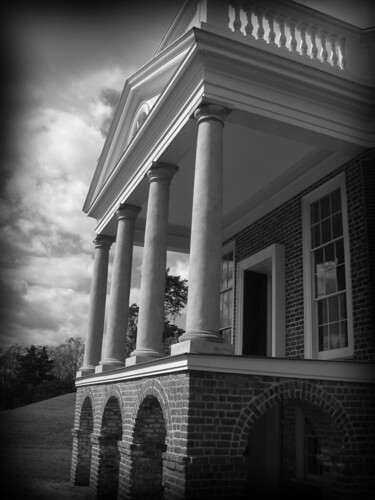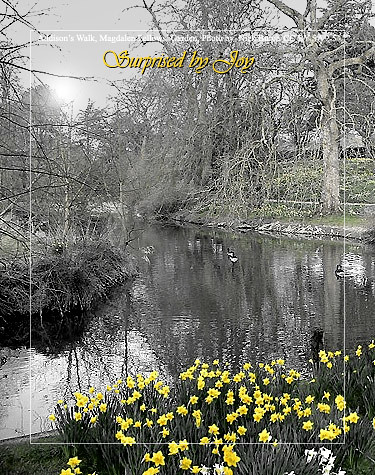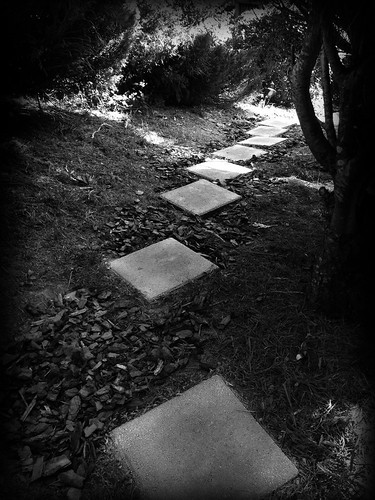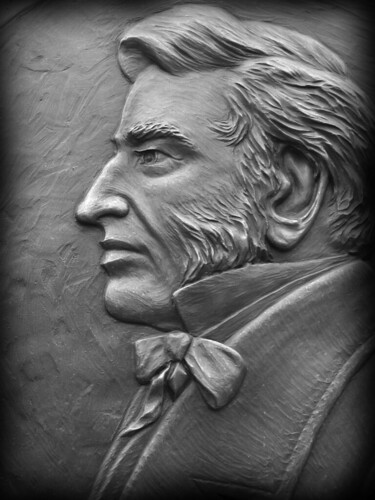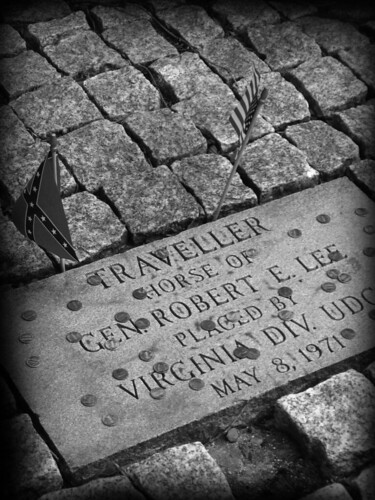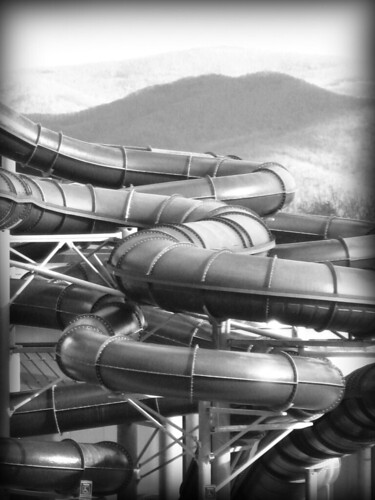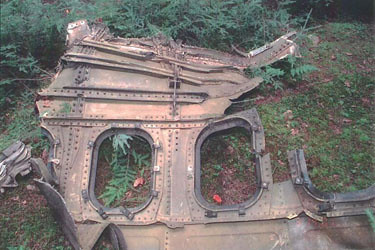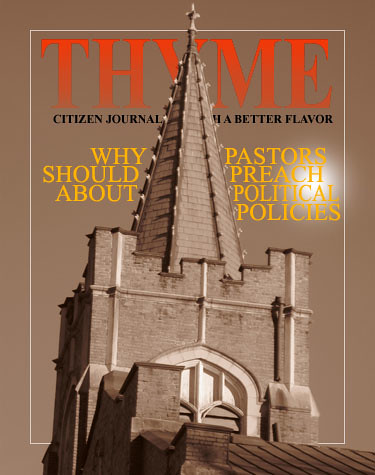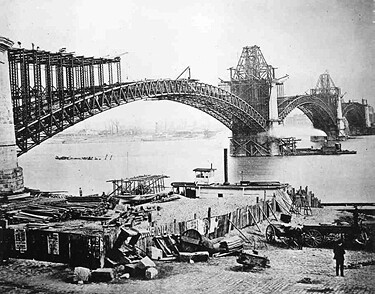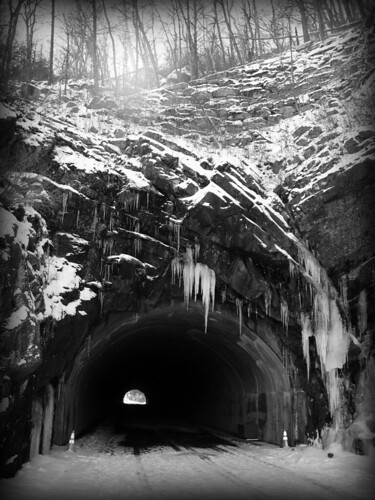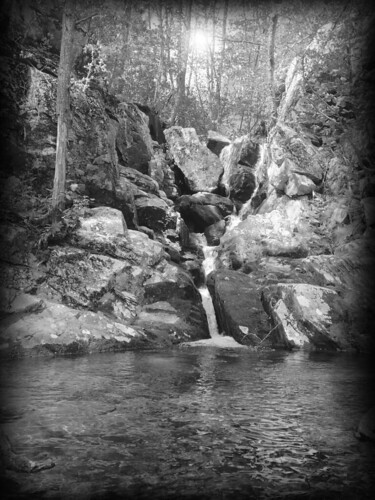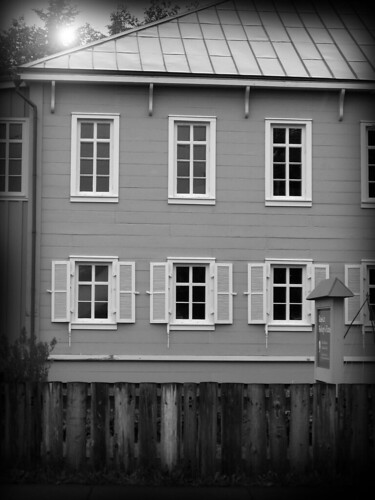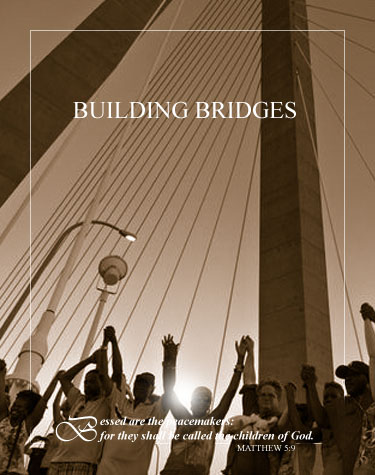
Volume XII, Issue IX
Building Bridges
One of my favorite scenes in the movie: 'Remember the Titans' is the one where Gerry Bertier and Julius Campbell realize that they are indeed brothers. Though they are of different cultures in segregated Virginia, they come together as teammates and develop bonds that are far deeper. The film is one we should perhaps dust off in these difficult days and pause as well at the scene where the team runs at dawn to the battlefields of Gettysburg.Coach Herman Boone speaks:
Anybody know what this place is? This is Gettysburg. This is where they fought the Battle of Gettysburg. Fifty thousand men died right here on this field, fightin' the same fight that we're still fightin' amongst ourselves today.
This green field right here was painted red, bubblin' with the blood of young boys, smoke and hot lead pourin' right through their bodies. Listen to their souls, men:
I killed my brother with malice in my heart. Hatred destroyed my family.'
You listen. And you take a lesson from the dead. If we don't come together, right now, on this hallowed ground, we too will be destroyed -- just like they were. I don't care if you like each other or not. But you will respect each other. And maybe -- I don't know -- maybe we'll learn to play this game like men."
Indeed, upon learning of the death of the Reverend Honorable Clementa C. Pinckney and eight of his congregation, I read his biography on the church website. I grieved a brother. The man and I held dear the same things. He died loving the people of G-d and building the Unseen Kingdom. Reverend Pinckney and his little circle were co-laborers in my most cherished work.
Surely that would be a brief thought, only to be lost in the onslaught of politicized news to come in the days to follow.
But I had made a fatal miscalculation. I underestimated the G-d that Reverend Pinckney and I serve (the present tense in intentional, for I believe he stands in the Presence of our shared Master today). To know the true greatness of a man, look at his pupils! As the members of the congregation who had just lost loved ones at the hands of a depraved gunman stepped forward to extend forgiveness to him, I recognized the hand of the Divine in their lives.
As thousands lined the Arthur Ravenel Jr. Bridge, arms and hands joined,to remember and pray; the Divine was at work! Dr. Henry Blackaby tells us to look for G-d at work and join him in that work. That call is clear today.
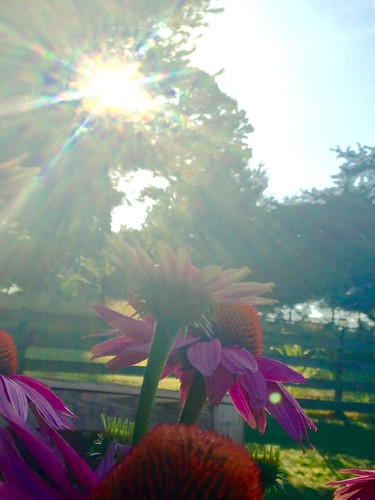
Magic Garden Morning.
Once, I looked up and I saw Heaven, a world above me brightly shining. My heart cried for wings. I looked around me and saw pain and suffering. The world was grey. I looked down and I saw a child with tear stained cheeks I reached out and grabbed his hand he looked at me and smiled. I saw a flower bloom red and full of life. The child picked the red flower and turned to his mother. She stood alone sad and cold. The child gave the red flower to his mother and her hard face softened I looked and saw a blue rippling stream. The mother saw an old crippled man, who could not move his legs to get a drink. She carried the man to the stream and gave him water to drink. He cried tears of joy. I saw a yellow bird sing. The old crippled man learned the yellow bird’s song and shared it with all he could see and everyone who heard it would feel happy. I saw rainbows shoot across the sky. I went on my way reaching out, feeding the hungry, clothing the naked, caring for the sick, seeing for the blind, hearing for the deaf, befriending the friendless, singing to bring happiness, and loving the loveless. Then one day I looked back and realized I had wings all along. My wings had been the love reached out to heal others who were broken. My heart burst with joy.
-- Kristina Elaine Greer

Rainbows Over the Magic Garden.
Builders and Blessed Peacemakers
There is much news in these days. Not all of it is good, yet I firmly believe that beyond all the distractions there is great reason for hope. We have faced dark and troubling times before, yet we have seen the hand of the Divine work through ordinary people... and history was changed by it. So please join me in praying for the hand of the Divine to "give us wings," as my friend Kristina says, to do His bidding. We can, inspired by the Spirit of G-d, build His Kingdom! Here are some stories to spur us on.
Making a Country Great
[click to read]
In the early 1860’s there were two Americas. There were the Eastern states who would all too soon divide into Union and Confederacy, but then there was California. Although America stretched from “sea to shining sea,” California was isolated from the East by what many considered miles of uninhabitable desert. To get to California, one often took passage on a ship to Panama, made a short trip overland and then boarded another ship for San Francisco. California, in time, could have easily become another country. (Read More)
The Gift Horse
[click to read]
If there was anything that bothered Rupert Zimmerman it was 'impossibility' created solely by bureaucratic convolutions. When the family packed in the car during his youth to visit the extended family in Michigan, they were inevitably faced with the Breezewood Interchange on Interstate Seventy. On Summer road trips the mighty highway's brief diversion to the old Lincoln highway resulted in gargantuan traffic jams, boiling radiators and often as many boiling tempers. Zimmerman's father REFUSED to stop at the roadside businesses who's continual lobbying fended off many a reasonable attempt to build the connection. (Read More)
I am repeating this issue because it is what I want to think of and practice as yet another American city descends into chaos. May we all find our 'wings' today!
The America I Love
Not long after Eli Whitney invented the Cotton Gin, Cyrus McCormick invented another significant agricultural invention that revolutionized farming: the mechanical reaper. In the shop of this mill in the Great Valley of Virginia, McCormick built the prototype for his mechanical harvester. His invention would revolutionize agriculture around the world.
McCormick was the eldest son of Robert McCormick, a farmer, blacksmith, and inventor. McCormick’s education, in local schools, was limited. Reserved, determined, and serious-minded, he spent all of his time in his father’s workshop.
The elder McCormick had invented several practical farm implements but, like other inventors in the United States and England, had failed in his attempt to build a successful reaping machine. In 1831 Cyrus, aged 22, tried his hand at building a reaper. Resembling a two-wheeled, horse-drawn chariot, the machine consisted of a vibrating cutting blade, a reel to bring the grain within its reach, and a platform to receive the falling grain. The reaper embodied the principles essential to all subsequent grain-cutting machines." -- Encyclopedia Britannica [1.]
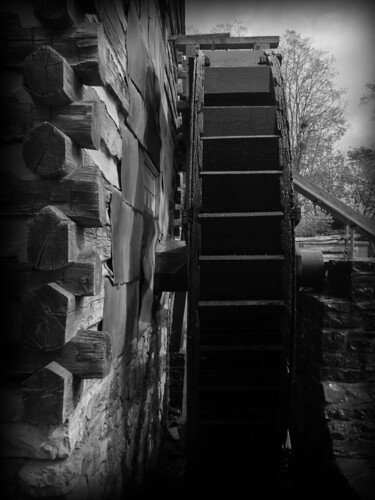
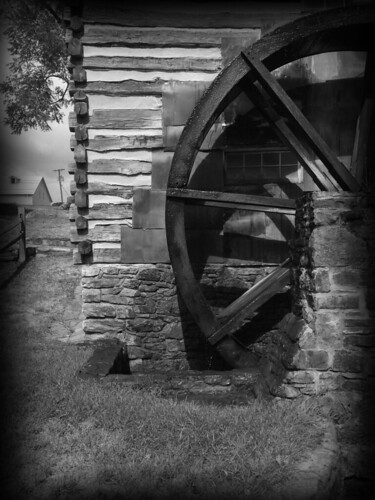
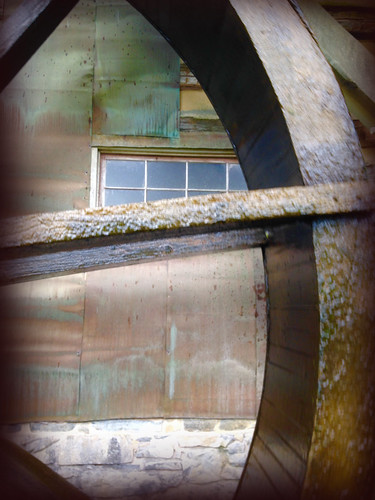
At Robert McCormick's mill and shops, his 22 year old son Cyrus invented the first practical harvesting machine.

